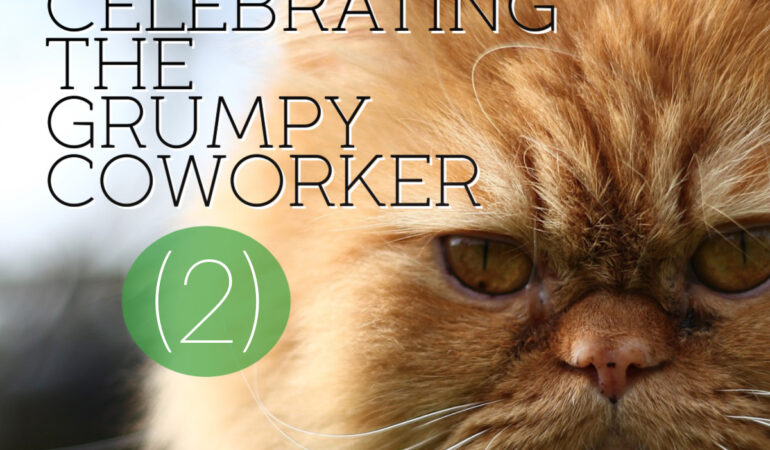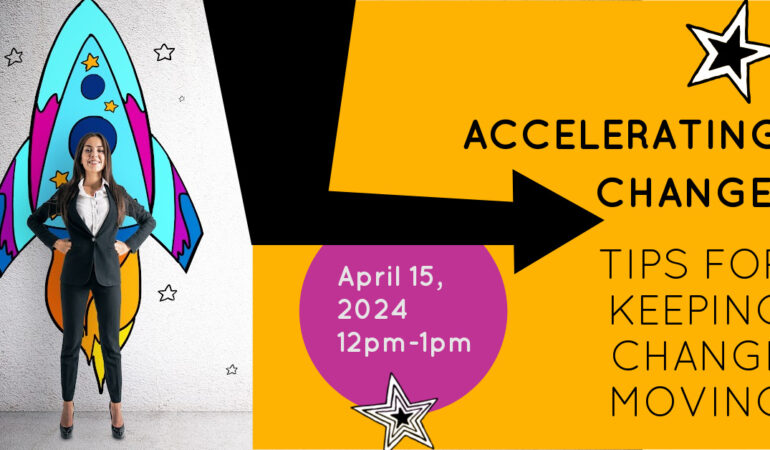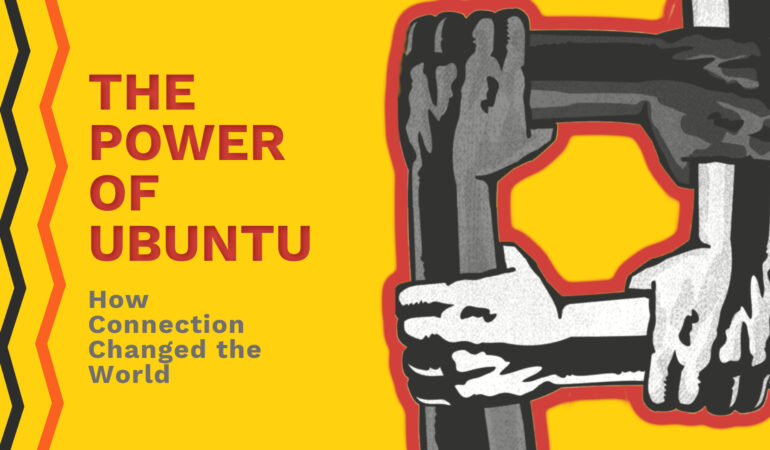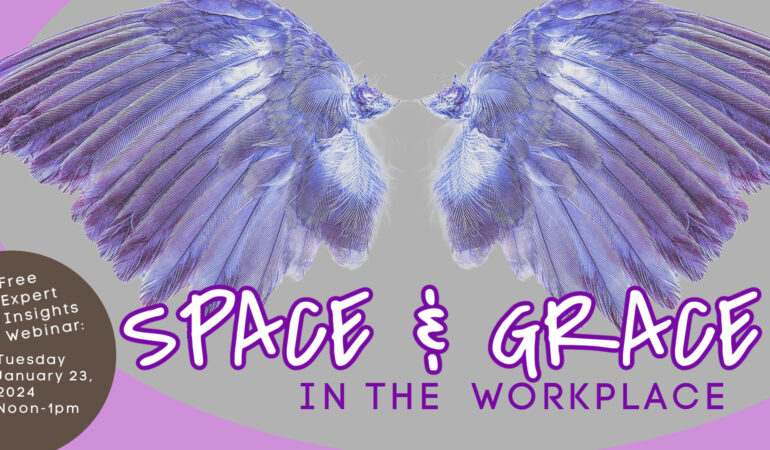Celebrating the Grumpy Coworker: Part One of a 3-Part Series
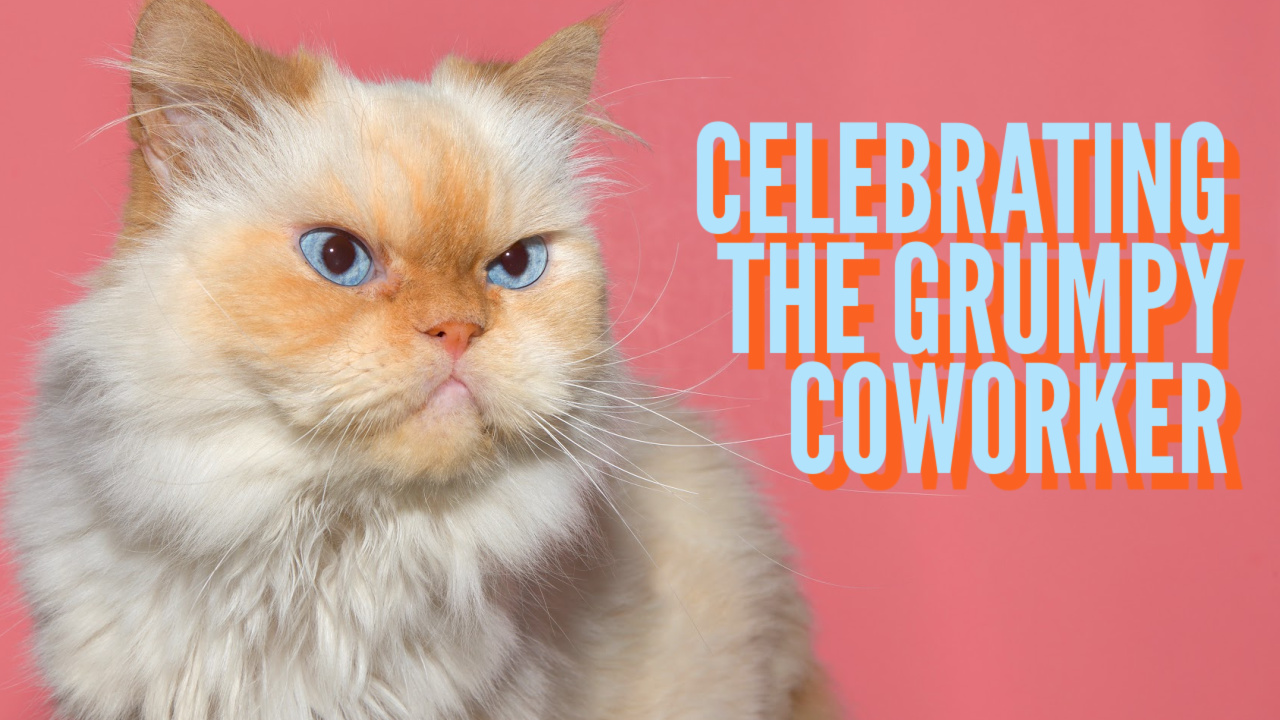
Curmudgeon
cur·mudg·eon
Definition: a crusty, ill-tempered (usually old) person
Also known as:
- Killjoy
- Wet Blanket
- Grouser
Most Well-Known Phrase: “Get off my lawn!”
I have written quite a few articles for IPD over the years, so I feel like you have gotten to know me pretty well; therefore, this confession may come as a bit of a shock, but I am a closet curmudgeon.
To those who read the articles on the IPD website, this may surprise you because I write about engaging employees, valuing people’s input, and encouraging chit chat at work. And, I believe in all those things – no, really… I really do because I strive to keep my inner-curmudgeon hidden during the workday.
(Disclaimer: Truth be told, as I get older, my curmudgeonliness may be more out in the open than I am aware of and not so much of a secret to those who interact with me regularly.)
But now… I may not have to hide or attempt to keep my curmudgeon self hidden any longer.
New research is debunking the myth that the always-happy employee is your most productive employee.
You may feel that some of my articles have promoted that theory. I would like to be on record saying that I promote how engagement affects productivity. If you go back and read my articles, engagement looks different than happy. Engagement is not about sugar-coating bad news or smiling until your cheeks hurt; engagement is:
- Removing inane processes that create unnecessary barriers to work completion
- Enabling flexible work situations for life adaptability
- Thanking people for specific accomplishments and contributions
- Being a part of a team that includes and respects each other – even if someone is a curmudgeon
- Providing challenging work that helps people contribute to the organization
To quote the famous Ted Lasso*, “Taking on a challenge is a lot like riding a horse, isn’t it? If you’re comfortable while you’re doing it, you’re probably doing it wrong.” In other words, easy and happy are not the same as challenged and engaged.
If you are not already a curmudgeon, it’s not too late to take up the challenge. And remember, if it is not uncomfortable at first, you may not be doing it right – or maybe you are a closet curmudgeon too, and you feel a weight being lifted.
If you are not convinced that grumpy is good, stay tuned for our next installment: Because the Research Says So… (be sure you say the title in your best curmudgeon voice) which is Part 2 in the 3-Part Series: Celebrating the Grumpy Coworker.
*I have a new person on my team who shares a Ted Lasso quote each week – which is where I heard this one. I hear that Ted Lasso is a “feel-good show,” but I am too much of a cheapskate (cousin to curmudgeon) to pay for Apple TV, so I am not sure if Ted falls into the always-happy employee category. I am hoping not, but that may just be the curmudgeon in me.
Celebrating the Grumpy Coworker Part 2: Because the Research Says So…
A curmudgeon may be known for saying Because I said so… In this article, I am saying this because the research says so. Yes, research provides solid reasoning for having at least 1 grumpy coworker on your team or in your department. I can provide 4 reasons to tolerate your grumpy coworker.
Here are the strengths your Grumpy Coworker brings to your team:
1.Analytical
The grumpy coworker brings the correct mood to be analytical. Research finds that when people are in a grumpy mood, they perform analytical tasks better. Besides being skeptical, you can use your grumpiness to proofread documents, search for numerical inconsistencies, review data for trends and patterns, and identify inconsistencies in new situations or processes that warrant more attention. Because skeptics ask for proof, they bring critical thinking, innovation, and integrity to any workplace problem-solving discussion.
2. Status Quo Challenger
Grumpy people are more likely to speak up and open topics in conversations that others may be afraid to address. Curmudgeons do not care if they are liked, or at least, liked by everyone all the time, so they are OK saying what needs to be said. Their intriguing comments can increase the engagement of other team members. Someone who is willing to challenge the status quo helps your team avoid Groupthink and is actually, ironically, a catalyst for positive change. Organizations who listen to their grumpy challengers are more likely to be innovative and adapt to uncontrollable forces. And, also ironically, the curmudgeons’ workplace longevity is a testament to the qualities of resiliency and agility – not traits we usually associate with curmudgeons
3. Persistent
According to a study by the American Psychological Association, angry people are better at thinking innovatively for out-of-the box solutions and more likely to persist in the challenging work to implement those solutions. Angry is one step beyond grumpy, but I still felt the study was worth noting here. Curmudgeons have standards; they know how things should be done and they are willing to put in the time and energy to ensure those standards are being met on behalf of their team, department, organization.
4. Productive
In the United States, we tend to value more highly someone who is even-keeled as a team member than someone who is grumpy. However, research shows that anger is the most productive emotion. Anger was the best emotion for problem-solving and overcoming a challenge – more so than cheerfulness, sadness, or apathy. Again, grumpy coworkers may be more irritated than angry, but they are still on the right track.
Things can go wonky in the workplace. The curmudgeonly grumpy coworker says This is wonky. This needs to be fixed. This is bordering on ridiculous. We need to stop this. (As a closet curmudgeon these phrases are familiar to me) along with This is very frustrating. This makes it difficult for me to do my work. This does not mean that the situation will be fixed or even addressed although organizations are more likely to fix things when made aware that they do not work. By stating their unhappiness out loud, the curmudgeon can help their organization fix process and be more efficient.
The curmudgeon is also more productive as an individual worker. The American Psychology Association states that by expressing anger and frustration, you can be more productive at work. When you are unhappy and frustrated, but are afraid to express those feelings, you can waste energy on pretense. Smiling and pretending that everything is OK when it is not, takes time and energy – time and energy that you are not using to get work done. Passive acceptance of bad situations is not necessarily positive. Another study showed that women who are happy all the time at work are less likely to be promoted.
In addition, expressing anger and frustration in a proper manner to the proper people means that grumpy coworkers are less likely to have it come out sideways at the wrong time and directed to the people who do not deserve to be on the receiving end of an angry outburst.
In summary, a grumpy coworker can help you be innovative, critical thinkers who are more likely to address problems and challenging issues so that they, their coworkers, and their organization can be more productive.
But, before all you curmudgeons out there start dancing for joy – wait… you would probably not do that – before you start waggling your finger saying I told you so, know that being grumpy all the time will decrease your impact.
Coming soon: Celebrating the Grumpy Coworker: Part 3 – Too Much of a Good Thing
Series Resources
Fortune: Getting Angry Can Make You Better at Your Job
LinkedIn: Is Groupthink Reducing the Effectiveness of your Team?
NDTV: Can Being Angry at Work Make You More Productive? This Study Says Yes
PTC News: Can Anger Boost Productivity?
Quartz: The Case for Being Grumpy at Work
Sky News: Getting Angry Boosts Performance and Productivity
StudyFinds: Research, in a nutshell: It’s good to be grumpy
Christine Moore
Christine Moore
Title/Position
Instructor, Metropolitan State University
Expert Areas:
- Project Program & Portfolio Management
- Agile Methodologies
- Immersive Simulation
Education/Professional Certificates:
- Bachelor’s degree in Management Information Systems from Augsburg College in Minneapolis
- Pursuing a Master’s degree in Human Resource Development and Organizational Change Leadership.
- Certified as a Project Management Professional (PMP®) by the Project Management Institute (PMI®).
- Certified as a professional facilitator by the International Association of Facilitators.
Relevant experience to topic areas:
- For more than 20 years, Christine has led, trained, and coached teams charged with making change.
- Among the organizations Christine has worked with are:
- American Express
- Canadian Pacific
- Novartis
- Scott County
- Motorola
- Santa Clara County
- Ecolab
- HB Fuller
- Valspar
- NACR
- Owens Illinois
- In addition to working directly with organizations and their teams, Christine creates and leads educational workshops that incorporate immersive simulation learning to ensure skill-based development and real-life application.
Philosophy of training in a nutshell:
Adults learn by doing which means training must present opportunities to “do” (practice, execute, apply). Whether designing or delivering training, she strives to create these opportunities.
Why the instructor is excited about teaching at Metro State:
Instructor quote: “Metro State’s motto: ‘Where life and learning meet’ is perfectly aligned to my philosophy regarding learning by doing. Additionally, those attending Metro State’s Professional Development classes are highly motivated individuals striving for new or better careers, and I find that inspiring.
Accelerating Change: Tips for Keeping Change Moving | Past Free Expert Insights Webinar
Audience: Formal and informal leaders along with Movers and Shakers
The Leadership Toolbox Webinars focus on a specific leadership tool so that you can become a more effective leader.
Change will happen.
How you navigate it can determine whether it stalls, dies, or accelerates. Join us to learn how you respond to change and how to keep others moving.
Takeaways:
- Learn the four change responses
- Understand the phases of change
- Get tips on how to accelerate change
The Power of Ubuntu: How Connection Can Change the World
By: Destyn Land
In American culture, we are often commended for our independence and ability to conquer tasks on our own. Our society values individualism, emphasizing personal freedom of speech, thought, and expression. While these ideals hold great power, it is equally vital to recognize the beauty that comes from embracing interdependence and the reciprocal nature of receiving help. However, this notion of interdependence can sometimes be overshadowed by our inherently individualistic mindset in the Western world. We must not consider this mindset as inherently negative, but rather as a different way of perceiving the world.
This is where the philosophy of Ubuntu comes into play. Originating from the Bantu people and the Nguni language of South Africa, Ubuntu embodies a set of values including caring, harmony, responsibility, compassion, reciprocity, connection, and continuity. Translated to “Humanity,” Ubuntu encapsulates the understanding that “I am because we are.” It entails looking beyond ourselves and acknowledging the connections between our lives and the lives of others.
Ubuntu challenges us to recognize that societal issues impact us all, of course in varying degrees. It teaches us to move beyond sympathy and into empathy, prompting us to take action. As the renowned Dr. Cornel West once paraphrased, empathy is not merely imagining someone else’s experiences but rather summoning the courage and will to do something about it. When we internalize the belief that “I am because we are,” we refuse to remain silent about the stories of marginalized individuals and the injustices they face. We reject the notion that we can continue with “business as usual” after encountering stories of inequality and injustice.
Ubuntu urges us to seek unity and communal well-being within our humanity. It declares that my well-being is intricately tied to yours; I cannot be truly fulfilled if you are not. Truly none of us can be free until we all are free.
Here are some transformative steps to infuse the spirit of Ubuntu into your workplace:
Make Room for Genuine Connection:
Embracing Ubuntu necessitates moving beyond a focus solely on individual circumstances. Teams should foster curiosity about the needs of people within their organization and the communities they serve. This culture of storytelling enables employees to become deeply moved by the stories of those around them. Let us challenge the notion that meeting success is solely determined by productivity, and instead evaluate success based on how connected individuals feel to their team. There is room for both productivity and team-building; we need to make room for it.
Amplify Recognition and Appreciation:
A primary reason people leave fulfilling jobs is the lack of recognition and appreciation. While we may not seek validation solely for our work, we should never underestimate the impact of recognition. One of the most powerful gifts we can give our colleagues is truly “seeing” them, through acknowledging their strengths, talents, and capabilities. I can still vividly recall the life-altering moment when I felt genuinely “seen” at work. When we publicly recognize and appreciate individuals, we affirm their authenticity and encourage them to embrace their unique gifts.
In the continuous journey towards justice and equity, my professional chapter has taken a new turn, leading me down a path to explore the intricate relationships between equity and health in a Minneapolis hospital. I may have left my previous role, but in essence, I am simply continuing the work of creating a world where all individuals can experience freedom, wellness, and wholeness within a different industry.
Reflecting on my time with IPD (Institute for Professional Development), the concept of Ubuntu consistently resurfaces: “I am, because we are.” The essence of who I am today, as well as the nature of my work, has been profoundly influenced by the connections and contributions of this department. It is essential to recognize that this influence goes both ways. The Institute for Professional Development is not what it is solely because I was here; rather, every individual on our team adds value to the space. Each encounter with another human in our workplace and life leaves an indelible mark on us. Whether those interactions were positive or challenging, they reveal something about us and the world we inhabit.
To Beth, Metro State University, the remarkable clients we have partnered with, and every participant in the training I have had the honor of facilitating, I want to express my heartfelt gratitude. I am undeniably who I am because we are.
By embracing the spirit of Ubuntu, our workplaces can be transformed into harmonious environments brimming with connection. Recognizing our interconnectedness as humans fosters understanding, empathy, and unwavering support for one another. Ubuntu teaches us that true prosperity is unattainable if any member of our community is suffering. Let us strive to build workplaces where Ubuntu becomes more than just a statement; it becomes the guiding framework that shapes our actions and interactions. Together, we have the power to create lasting change not only within our workplaces but in the world at large.
Until our paths cross again on this lifelong pursuit of justice, I wish you well.
IPD Welcomes Eric to the Team – New Diversity, Equity, and Inclusion Program Specialist
Eric Dormoh, Jr is our new DEI Program Specialist.
 He started January 3rd and is connecting with organizations that want Diversity, Equity, and Inclusion training in their organizations.
He started January 3rd and is connecting with organizations that want Diversity, Equity, and Inclusion training in their organizations.
Once Eric has made those rounds, he will pick up the work of Destyn Land and:
1. Continue to build and launch the DEI Workplace Influencer Certificate – available to individuals who are shaping DEI in their workplaces through their role in HR, or the role on a DEI committee or task force, or their role as a department or division leader.
2. Build and Launch the DEI Advancing Program. This will be a subscription model for virtual training on new DEI laws, evolving DEI best practices, and tips and strategies for navigating awkward work situations – especially those related to current events and headlines.
To see Eric in action, check out the January Expert Insights session Space and Grace in the Workplace | January Free Expert Insights Webinar.
Eric Dormoh, Jr.
Eric Dormoh, Jr.
Expert Areas:
- Unconscious Bias
- Cross-Cultural Communication
- Microaggressions
- Building Inclusive Language
- Identity at Work
- Imposter Syndrome
- Mentoring
- Community Building
- Emotional Intelligence
Education:
Masters of Science in Educational Leadership and Policy Analysis
University of Wisconsin
Bachelor of Science in Sports Management
University of Minnesota
Philosophy of Training in a Nutshell:
Space and Grace. When I facilitate, the learning activities are engaging and create an interactive environment. I lead from a place of open-mindedness and a space for every voice to be heard.
Why the instructor is excited about teaching at Metro State:
I am excited to share my knowledge with the greater community to help create more inclusive and welcoming work environments.
Space and Grace in the Workplace | Past DEI Expert Insights Webinar
Space and Grace in the Workplace
Free DEI Expert Insights Webinar
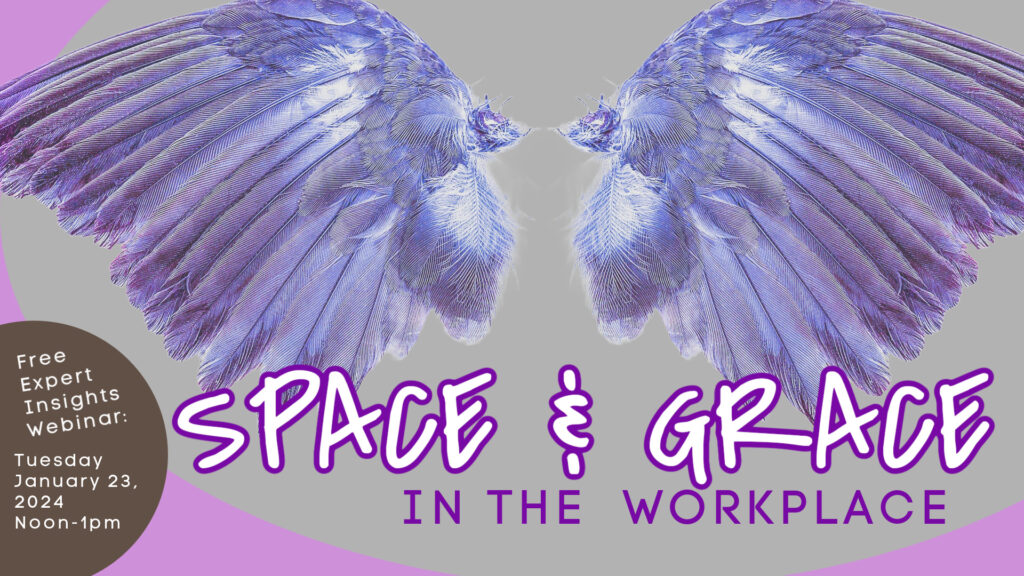
This workshop is for leaders of departments, divisions, or teams and for anyone who is striving to make their workplace more respectful for all.
- Actions that leaders and coworkers can take to provide space and grace
- Strategies to approach DEI issues in a non-shameful way
- How to create guidelines that allow for mistakes and respectful corrections.



